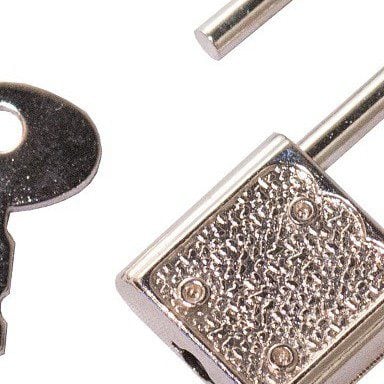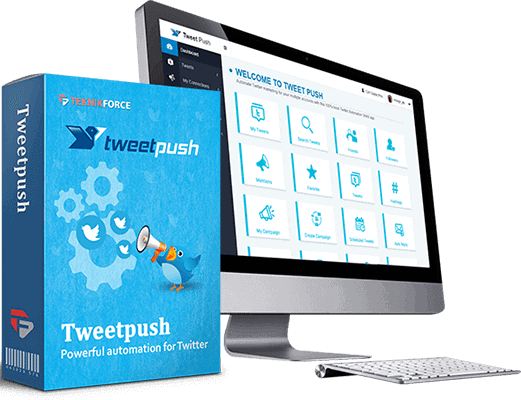
Introduction:
An MLM scam is essentially a pyramid scheme. There is no genuine product or service sold and the emphasis is on recruiting new members. The reason for discussing this, is the extent of MLM scams on Linkedin is becoming totally disheartening for genuine jobseekers, who have to not only compete but also wade their way through the maze of scams wanting your personal and financial details as well as the Huns and Babes.
Recruitment on Linkedin is attractive to MLM’ers, because you can run an ad for 3 days, before you have to pay anything.
With new data saying more people are joining MLMs, you can imagine the extent of MLM’ers recruiting on social media, of which Linkedin is a part.
There are even blog articles on linkedin telling MLM’ers how to hunt on Linkedin.
So while this may be good for MLM recruiters, people looking for genuine career change or in between jobs, are… let’s say not exactly impressed.
Some of the opinions on Quora and Redditt are far from flattering.
I’m in LinkedIn and was recently more active as I was in between jobs for a few months. That was when I discovered sadly there are MLMs in the solar industry.
I loathe going on there. It just feels so scummy to me, especially since everyone seems to be in some MLM or have some ‘program’ that they think would help me change my life, give me freedom, and lose 50 lbs. It’s icky.
It is good to know there are legitimate recruiters out there too. But largely, I am about ready to put “NO MLMS” on my bio so people will leave me alone
Redditt.
- This article will cover what an MLM scam is, and look at the recruiting practices on Linkedin. Many of the MLMs mentioned have been reviewed on this site.
- How do MLMs operate on LinkedIn
- How to Identify MLM scams on LinkedIn
- What to do if you have been scammed.
- Conclusion.
- Video.
What are MLM scams?
As mentioned above they are essentially pyramid schemes that entice people in by preying on basic Western ideals, such as entrepreneurship and economic mobility, and also peoples vulnerability if they are in a bad place financially and mentally at the time of contact.
If your head space is not where it should be, then you may fall for the lure of lucrative earnings and financial freedom, enticing you to join “their” network “and be your own boss” ( join their team and be your own boss? Go figure).
Related Article Here.
Then comes the money part.
You will have to buy a “Starter package.” You will be told that if you are going to get serious about making “it” you should buy the “Complete package”
Of course this translates to the most expensive.
The money making model primarily relies on you contacting people, selling products or services to them, and try and recruit them into doing what you are doing.
From the products you sell, “your sponsor” gets a percentage, their sponsor gets a percentage, and so on up the line.
Diagram Here.
MLMs that have been Reported on LinkedIn.
Below is a short list of some of the better known ones.
These are not necessarily scams but their products, methods and run ins with the FTC leave a lot to be desired if you were looking for reputable companies.
MLM members from Amway are also on LinkedIn, but not to recruit for salaried positions.
Just Amway members going in ever decreasing circles trying to replace those who quit.

And a host of others.
These companies are not illegal, but all have a chequered history with less than good quality products, and owners who have no problem smiling at their business partner while he/she is being stabbed from behind.
When it comes to MLMs the line between legal and illegal is cigarette paper thin.
So it is best to avoid both pyramid schemes and MLMs.

How do MLM Scams Operate on LinkedIn?
MLM, and other scams operate on LinkedIn by exploiting the platform’s professional nature and using deceptive tactics to connect with potential victims.
LinkedIn is for professionals and, we all know that MLMs are light years away from being professional.
I have checked out the user agreement, and I cannot see anything that specifically says MLMs cannot be promoted on there.
Linkedin is reasonably free with its user agreements, and savvy con artists can exploit it in much the same way they can Craigslist, Facebook or Instagram or any other social platform.
By cloaking their words when posting advertisements, or sending private messages asking questions about you (so they can build a profile of you), which they can then use to sell you a dream without providing any hard data.
The final benefit is usually something along these lines…
Your life will change. You’ll be your own boss. You’ll have a summer home, spend more time with your family, retire early. ?
The most common way of recruiting people on Linkedin is to trawl through those looking for “New Opportunities” and try and make as many connections as they can.
Usually with women, or College students looking to earn a few dollars, and then messaging them (examples below), if their connection has been accepted.
Some Examples of how MLMers use LinkedIn to Recruit People.


[Name is redacted. In the “about” section, it reads:]
Social Media Recruiting Manager at Vector Marketing. Helping students find remote work, internship, and scholarships.?
[About section ends.]
… Hey [Redacted], glad to connect! I run a local business in [Redacted] and we are currently filling positions for the summer. All of our representatives start at a $22 base-appt and we offer super flexible schedules! I’m reaching out because I know a lot of people are looking for summer work. We have a program where you can interview, train and work entirely virtually if you wanted. I would love to chat! Would you like more information?
OP: I’m good vector is a scam :((
Redditt
How to identify MLM scams on LinkedIn?
Right off the bat: As mentioned above, understanding the ambiguous nature of their advertisements is the first hurdle you need recognize.
However, on LinkedIn you are more likely to be approached via asking Linkedin members to connect, rather than an advertisement.
The messages they leave are also quite ambiguous. Normally terms like “financial freedom,” “Be your own Boss” are bandied about freely.
Or as above…
“Run through a brick wall to get it” Really…?
If you have missed the hints in the advertisement, the next one to beware of is asking for money to buy a kit, or pay for training.
Other red flags to be aware of on Linkedin, as well as other social media platforms include:
- Making out to be a social media influencer.
- Messages containing spelling or grammar mistakes.
- Fun Challenges and Events,
- Making “too good to be true” claims about a product or business.
- No requirements or special skills required.
- Messages asking you for personal or financial information, but not being asked for a resume.
- Not getting answers to your questions, instead being told you are being negative.
- Not being told the name of their product. (In case you do a Google search and see all the bad reviews).
- Love Bombing.
How to Avoid being Targeted by Scammers on Linkedin
The best piece of advice is to be careful with a public profile on LinkedIn.
Not only is it a magnet for faux-entrepreneur influencers, but it’s also where a lot of cyber scammers put fake profiles, photos and other information to lure people into so called “opportunities”, and even fraudulent schemes.
Personally, I would recommend keeping your information private and only engage with in-house recruiters at companies you might want to work for.
What to do if you’ve been scammed on LinkedIn?
LinkedIn offers a help page for people who have been scammed on LinkedIn.
As well as local law enforcement, it also reports scams to Interpol, the FTC and the Internet Crime Complaint Center.
You can see the complete page here.
What Resources are there for Victims of MLM Scams. (More detail in video below).
These are few and far between and most tend to be extremely bureaucratic.
Governments around the world have consumer affairs departments where people can register complaints.
Some states and countries also have Small Claims Tribunals.
Organisations like the FTC don’t usually act on one complaint and wait until there is a multitude of them before initiating court action against the MLM company.
This however, is of little use to an aggrieved consumer even if the MLM is obliged to pay a multi million dollar fine.
The primary reason MLMs and other scammers get away with ripping people off is that many victims are reluctant to complain, they just cut their loses and walk away.
The initial step of course is to make your displeasure known to the company and try and receive a refund of the amount you paid.
The Better Business Bureau is another that will push to try and recover your funds or resolve other issues, like not receiving product you have ordered.
One thing companies don’t like, is having people submit bad reviews about on places like Trust Pilot or Google.
The power of a bad review carries a lot of weight and companies with just a grain of social conscious will try and avoid this if they can.
But be warned:
Be sure of your facts. It is not unknown for an MLM company to file a lawsuit against a person if they cannot substantiate their claims.
They have no issues turning on each other, so, just be aware, their pockets are deeper than yours.
Other things you can do include:
- Contact you local political representative
- Contact an attorney
- Publish a blog post on LinkedIn detailing your experience. (Stick to the facts).
However… the first steps need to be taken by you.
Conclusion
As you can see there is a dark underbelly to LinkdeIn, and while they may be limited in the way they are able to respond, hopefully you will be able to recognize a MLM if it comes your way.
MLM scams on LinkedIn pose a significant threat to genuine job seekers and individuals looking for legitimate opportunities.
These scams, disguised as entrepreneurial ventures, primarily focus on recruiting new members rather than selling genuine products or services.

Identifying MLM scams on LinkedIn requires careful attention to red flags.
- Vague messages.
- Requests for upfront payments to buy kits or receive training.
- Promises that seem too good to be true are warning signs.
- Spelling or grammar mistakes.
- Claims from self-proclaimed social media influencers.
- Avoidance of answering questions are additional red flags of potential scams
While many victims are reluctant to complain, it is essential to make your displeasure known to the company and seek a refund.
Writing bad reviews on platforms like Trustpilot or Google can also have an impact, as companies often try to avoid negative publicity.
However, it is crucial to ensure the accuracy of your claims.
The enticing promises of financial freedom and independence often target vulnerable individuals who may be in a difficult financial or emotional situation.
The promise of financial freedom is not possible with MLM, because the drop off rate means if you expect residual income that keeps growing, then you need to recruit for the rest of your life at a pace that exceeds the drop off rate.
MICHAEL ILARDO
In the fight against MLM scams, it is important for individuals to stay informed, raise awareness, and support regulatory measures.
By recognizing the warning signs, reporting scams, and sharing experiences, we can help protect others from falling victim to these deceptive practices.
If you have an experience you want to share, feel free to comment below.









